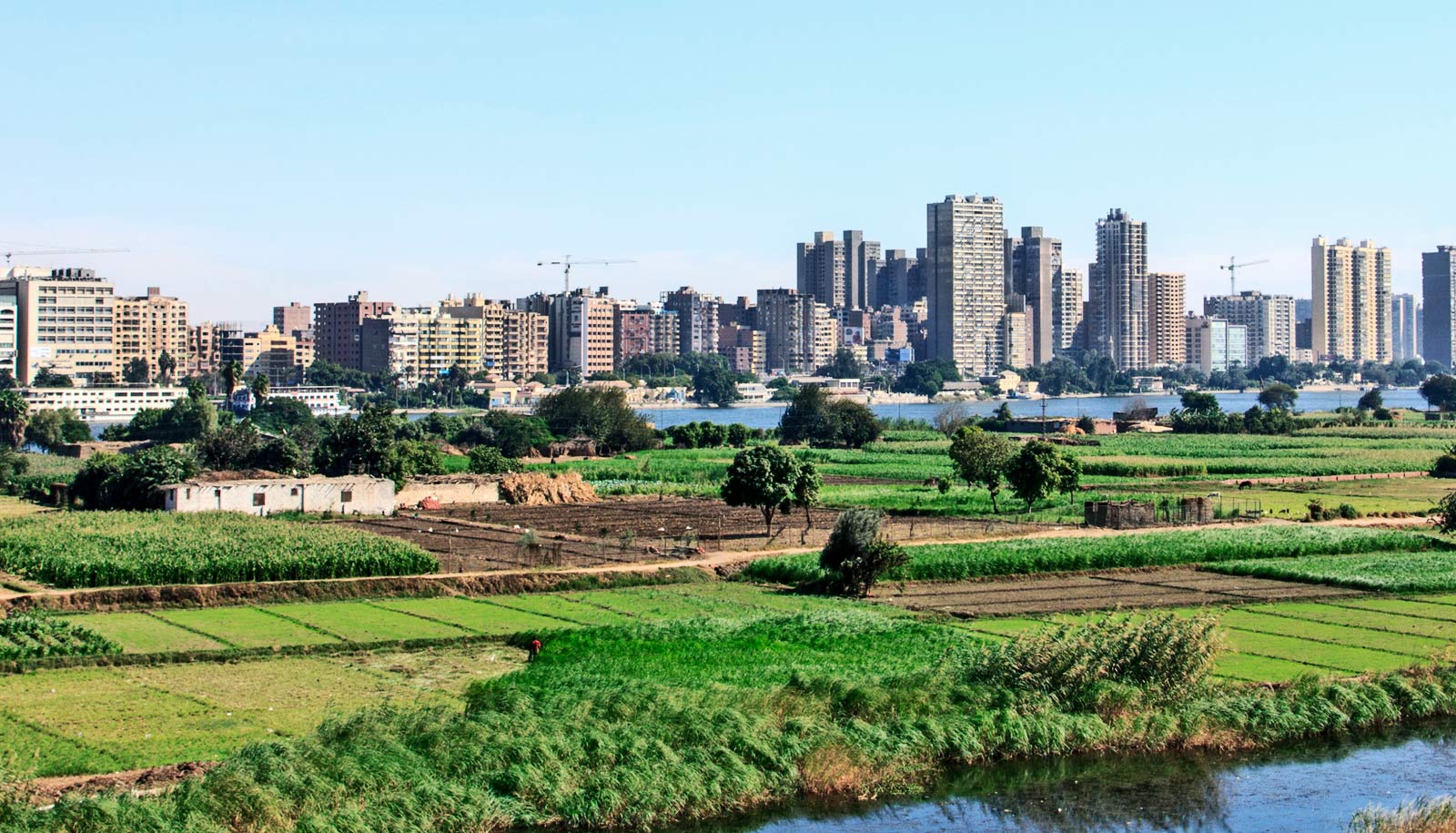The increase of mega-cities in some parts of the world is almost certain to eliminate huge areas of farmland critical for food production by 2030, say researchers. This shift could have severe implications worldwide.
A new study in the Proceedings of the National Academy of Sciences shows that some urban areas located near key farmland producing regions will triple in size, resulting in huge implications for agricultural systems already affected by rising populations. Africa and parts of Asia are most likely to feel the major impacts of declining farmlands, but other regions of the world could also be affected.
A major worry is that about 60 percent of the world’s irrigated cropland areas are very close to major cities, and these farmlands tend to be twice as productive as other areas. Scientists say this could mean a loss of 3 to 4 percent in global agricultural production by 2030, which could affect hundreds of millions of people worldwide.
Rice, maize, soy beans, and wheat—all key food sources for billions of people—are most likely to be affected. Egypt could lose as much as 60 percent of its maize and Nigeria as much as 17 percent of its rice. Overall, rice production could fall as much as 9 percent worldwide, the study shows.
Drop in urban density by 2050 could drive up energy use
“There is no doubt that urban expansion is already having a big impact on declining farmland in some areas of the world, and this problem may get much worse in the next few decades,” says Burak Güneralp, research assistant professor of geography at Texas A&M University.
Key land losses will likely occur in Africa and Asia, especially in countries such as Egypt, Nigeria, and eastern China. Some parts of China might experience as much as one-fourth of the worldwide cropland loss.
“These very fertile lands tend to be on the outskirts of major cities, and as cities expand, more land is lost,” Güneralp says. “These are high-quality tracts of land that have been owned by small farmers who depend on access to urban food markets for their livelihoods.
As cities take over these lands, it results in lost food production that these areas depend on. One solution for countries like Egypt is trade to compensate for cropland loss—however, this could make them more susceptible to food supply shocks.
“Another potential solution for many sub-Saharan countries is opening new farmlands but that would typically result in conversion of habitats that are critical for conservation of biodiversity,” Güneralp adds.
“The loss of these critical farmlands puts even more pressure on food producing systems and shows that we must produce strategies to cope with this global problem.”
Source: Texas A&M University



